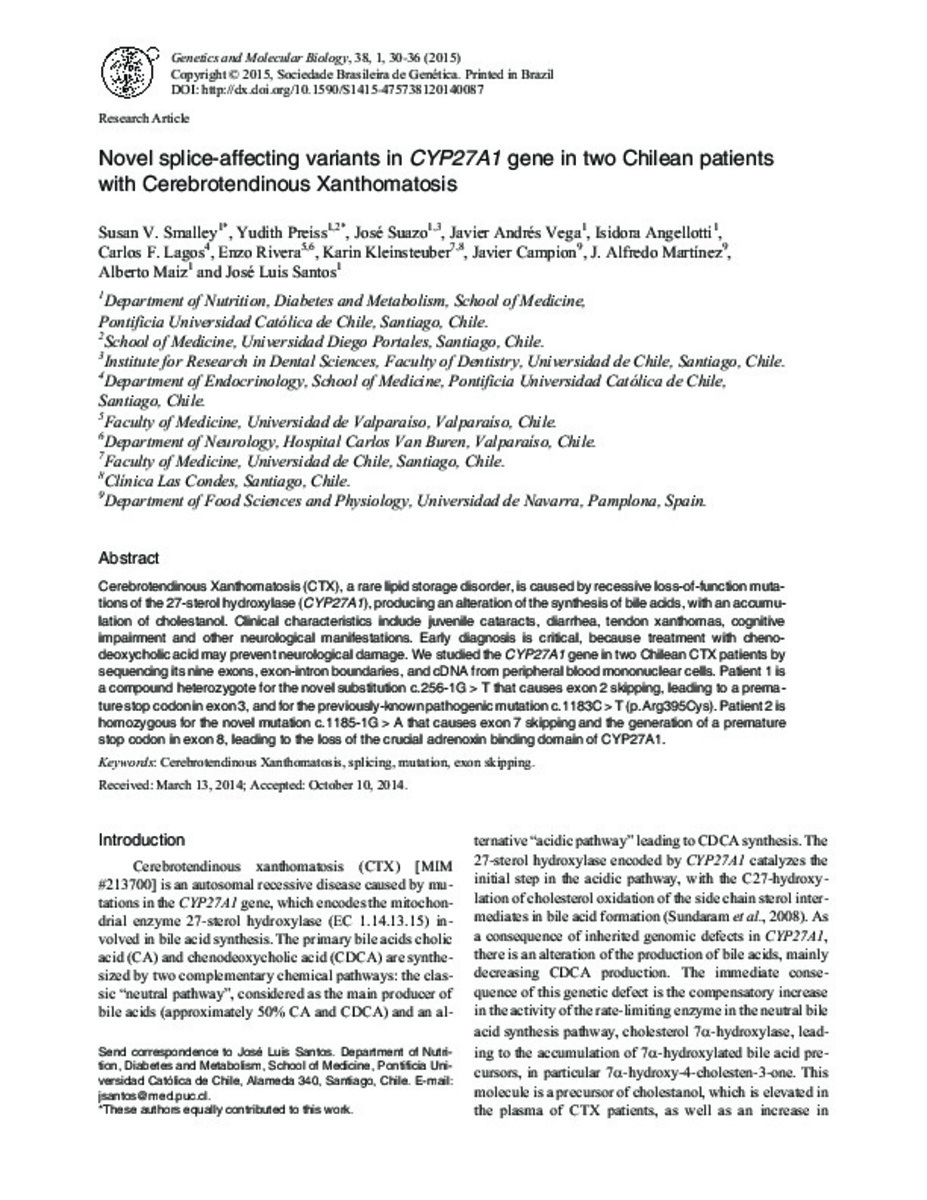Novel splice-affecting variants in CYP27A1 gene in two Chilean patients with Cerebrotendinous Xanthomatosis
Keywords:
Cerebrotendinous Xanthomatosis
Splicing
Mutation
Exon skipping
Publisher:
Sociedade Brasileira de Genética
Citation:
Smalley SV, Preiss Y, Suazo J, Vega JA, Angellotti I, Lagos CF, et al. Novel splice-affecting variants in CYP27A1 gene in two Chilean patients with Cerebrotendinous Xanthomatosis. Genet Mol Biol. 2015 Mar 38(1):30-36
Statistics and impact
0 citas en

0 citas en

Items in Dadun are protected by copyright, with all rights reserved, unless otherwise indicated.







